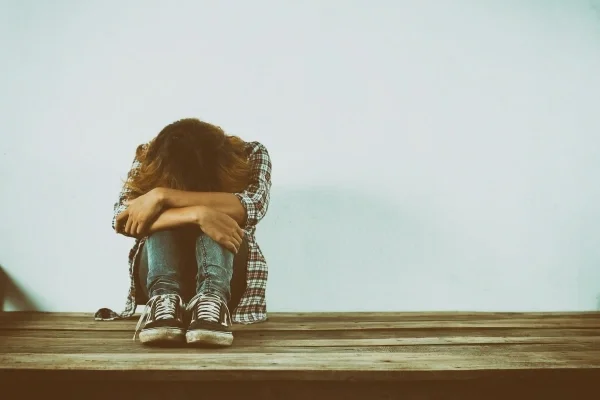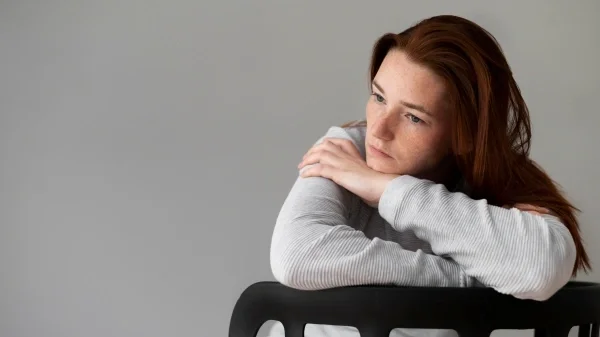Do You Feel Like You Just Haven’t Been Yourself Lately?
Have you been feeling numb or emotionally flat, like nothing excites you and it’s hard to find motivation for much of anything?
Maybe you’ve noticed:
Persistent feelings of emptiness and hopelessness
Low energy, along with changes in your sleep and appetite
Difficulty concentrating or enjoying things that used to bring you joy
Some days, just getting out of bed can feel like a major effort. You might wake up feeling heavy and exhausted, even after a full night’s sleep. Meals may be skipped or eaten without much thought. You move through the day on autopilot, barely present, just trying to check off your to-do list. Hobbies feel dull, invitations go unanswered, and scrolling on your phone becomes the easiest way to pass the time.
Amid it all, you may quietly wonder: Is this depression? What’s happening to me? And how do I start feeling like myself again??
Depression Is More Than Just Sadness
While sadness and tears can be part of depression, it often shows up in ways that can be easy to overlook.
For some people, depression might look like:
Feeling constantly tired, even after rest
Withdrawing from friends and family
Struggling to focus or remember things
Putting off responsibilities because everything feels overwhelming
Feeling unusually irritable or on edge over small issues
Sometimes these feelings are connected to difficult life experiences—like trauma, chronic illness, social rejection or an unhealthy relationship. Other times, depression can feel like it appears out of nowhere-a heaviness you can’t explain, a loss of motivation you can’t quite put into words.
If any of this feels familiar, you’re not alone. Therapy can help you regain energy, reconnect with what brings you joy and build practical strategies for managing depression. Remember, depression does not define who you are—and it doesn’t have to stop you from living a meaningful, hopeful and fulfilling life.
You Don’t Have To Face Depression Alone
Depression affects millions of people every year—nearly one in five adults in the United States. [1] It doesn’t discriminate. It can touch anyone, regardless of background, beliefs or life circumstances. For many, it makes life feel heavy, exhausting and deeply isolating.
There are many different causes of depression, including:
Unresolved trauma
A family history of mental health challenges
Grief, loss or major life changes
Ongoing pressures at work, school or home
Experiences of rejection or feeling excluded
Persistent feelings of inadequacy or failure
Sometimes, depression is also fueled by the pressure to “have it all together.” We’re often raised to believe we should rise above every challenge, stay positive and achieve success and happiness at all costs. Our work-driven, individual-focused culture often reinforces this by tying our worth to how much we achieve or produce. So when we feel like we’re not measuring up to those expectations, it’s understandable that feelings of sadness or depression can take hold.
If this sounds familiar, please know that your feelings are valid—and healing is possible. In therapy, we can work together to challenge unrealistic expectations, strengthen your self-worth and build practical tools for navigating depression in a compassionate, sustainable way.
Finding Relief And Healing From Depression
Depression can feel truly debilitating. It’s not just the sadness—it’s also the exhaustion, the loss of motivation and the sense that even the smallest tasks take enormous effort. Trying to push through it alone can feel impossible, and that’s why support matters.
In therapy, we’ll set goals that are both meaningful and manageable, taking things step by step at a pace that feels right for you. Together, we’ll work toward helping you:
Regain motivation and interest in activities that once brought you joy
Improve relationships and feel more connected to friends and family
Understand and manage negative thoughts and emotions instead of feeling controlled by them
Build coping strategies to handle stress and setbacks more effectively
Grow confidence in your ability to care for yourself and make choices aligned with your values
As we move forward, we’ll also explore the deeper emotional wounds—past or present—that may be contributing to your depression. This may include working through unresolved trauma, grief or painful life experiences. By healing what’s underneath, we can create space for lasting relief and feeling more like yourself again.
What To Expect In Depression Counseling Sessions
My approach is warm, inviting and relational—I aim to create a space where you feel truly seen, supported and safe enough to open up. Each session is an opportunity to gain deeper insight, try out new tools and start to feel more steady and equipped to handle the challenges that come your way.
In our work together, I draw from a variety of treatment approaches designed to meet your unique needs, including:
Cognitive Behavioral Therapy (CBT): to uncover patterns of negative thinking and build more balanced, realistic perspectives.
Behavioral Activation (BA): to help you re-engage in activities that bring you joy and meaning.
Mindfulness Strategies: to gently notice and manage overwhelming thoughts or emotional heaviness.
Interpersonal Therapy (IT): to navigate relationship struggles, grief or major life changes that may be fueling depressive symptoms.
Using a blend of trauma-informed and solution-focused approaches, we will work on improving your mood and re-engaging with your life. Over time, you can expect to develop practical tools for calming your emotions, navigating life's challenges and creating changes that feel sustainable and life-giving.

You May Have Some Questions About Depression Therapy…
-
Yes—absolutely. Depression can make it hard to believe that things can get better, but therapy offers a space to start shifting that narrative. Together, we’ll look at what’s been keeping you stuck, explore what truly matters to you, and work on small, meaningful steps toward change.
Many people begin therapy feeling drained or hopeless and gradually rediscover energy, motivation, and a renewed sense of purpose. It takes time, patience, and compassion, but healing is possible. Throughout our work, I’ll make sure you have practical tools and coping strategies to support you—so you never feel like you’re facing this alone.
-
Feeling unmotivated or stuck is actually one of the most common symptoms of depression—and it’s nothing to be ashamed of. When your mind and body are weighed down, even small tasks can feel like they take everything you have.
Therapy can help you find a way forward, even when motivation feels out of reach. We’ll go at a pace that feels manageable and focus on small, realistic steps that gradually build momentum. Over time, those small steps can begin to restore your energy, confidence, and hope. My role is to walk alongside you with tools, encouragement, and compassion every step of the way.
-
Only if and when you feel ready. While past experiences—including trauma—can sometimes play a role in depression, therapy should always move at a pace that feels safe and manageable for you.
We’ll start by focusing on what’s most helpful in the present, building stability and coping tools first. From there, if you choose to explore deeper experiences, we’ll do it gradually and with care. You’re always in control of what you share. Over time, many people find that gently processing the past helps them gain clarity, find relief, and feel more grounded in who they are today.
Finding Your Way Forward
You don’t have to stay stuck in the heaviness of depression. Together, we can work toward a future where your days feel lighter and you are filled with a renewed sense of purpose. Therapy is a chance to rediscover your strength and create a life that feels more like your own again.
If you’d like to learn more about my approach to depression counseling, I’d love to connect. You can reach out through the contact form or schedule a free 15-minute consultation. I look forward to hearing from you and supporting you on your path forward!
Recent Depression Therapy Blog Posts
381 W Byron Nelson Blvd Suite #201, Roanoke, TX 76262







